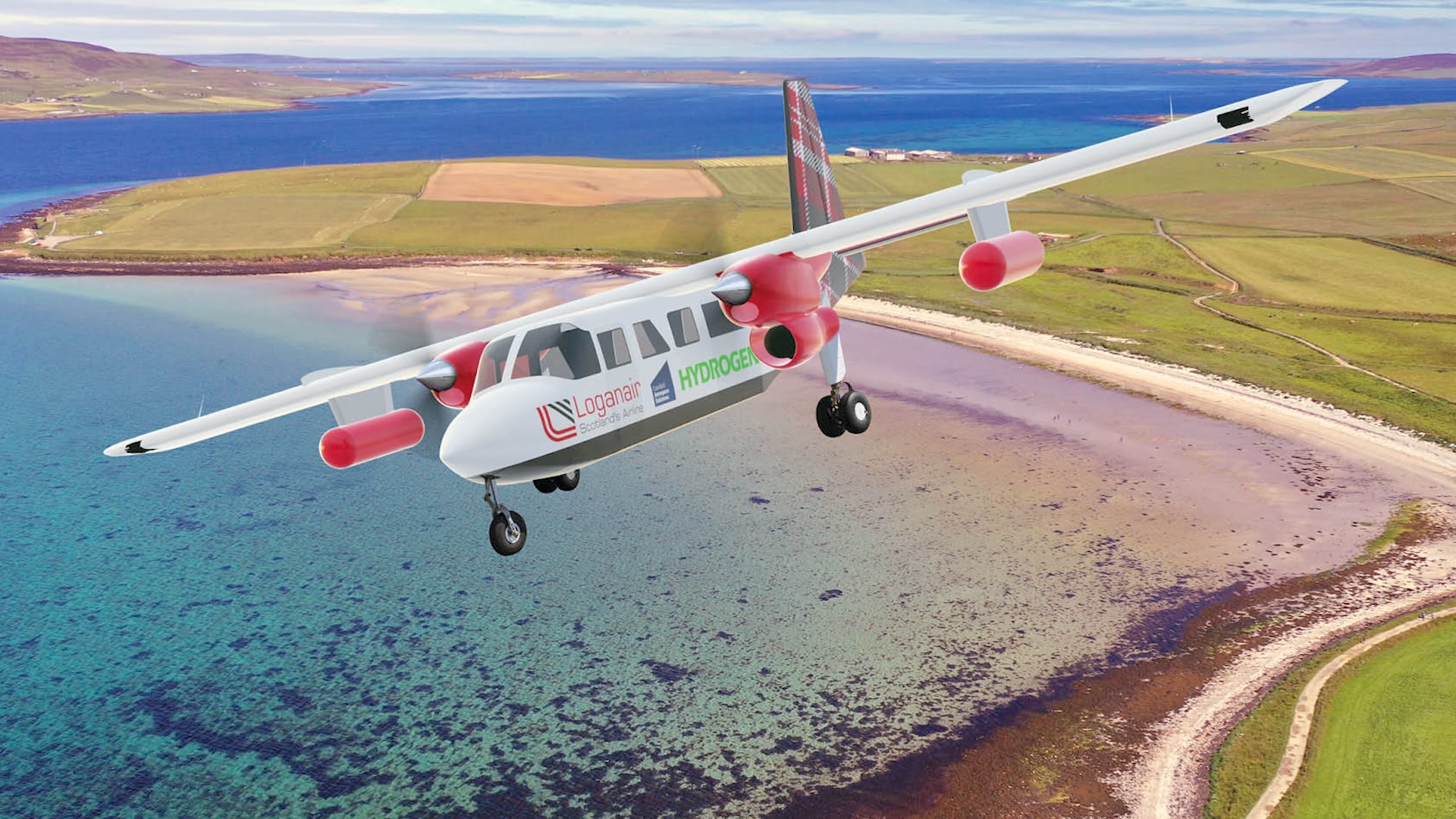Loganair's Sustainable Initiative: Paving the Way for Hydrogen-Powered Flights in Scotland
Key Ideas
- Loganair's partnership with the UK's largest regional airline aims to enable sustainable hydrogen-powered flights by 2030, reducing harmful carbon pollution.
- The airline is exploring short-haul routes in Scotland for hydrogen-fuelled services, part of the Sustainable Aviation Test Environment and the UK Civil Aviation Authority's 'Hydrogen Challenge'.
- Switching to sustainable aviation fuels like biofuel and hydrogen could significantly reduce carbon pollution, potentially revolutionizing the aviation industry and other transportation sectors.
- UK officials and industry leaders are optimistic about the project's potential to make the country a world leader in hydrogen propulsion and deliver the world's first hydrogen-powered commercial flight before 2030.
Loganair, in partnership with the UK's largest regional airline, is taking significant steps towards enabling sustainable hydrogen-powered flights by 2030. Unlike traditional jet fuel, hydrogen offers a cleaner alternative that can be produced using clean energy sources. The airline, as part of the Sustainable Aviation Test Environment, has joined forces with airports and other organizations to participate in the UK Civil Aviation Authority's 'Hydrogen Challenge'. This collaboration aims to explore the feasibility of large-scale hydrogen fuel infrastructure and pave the way for commercially viable hydrogen aircraft.
The initiative also aligns with Loganair's commitment to sustainability, as the airline is not only exploring hydrogen-fuelled services for regional aircraft routes in Scotland but also developing a hybrid-electric aircraft. By transitioning to alternative airplane fuels like biofuel and hydrogen, the aviation industry could significantly reduce its planet-warming pollution without compromising the convenience and speed of air travel.
With the aviation sector's rapid growth in recent years, there is a pressing need to address the industry's environmental impact. Traditional jet fuel, also known as kerosene, produces heat-trapping carbon dioxide and other harmful pollutants that contribute to global carbon pollution. By embracing sustainable aviation fuels, such as biofuel made from wastewater, the industry could potentially reduce carbon emissions by 70-80%. Moreover, hydrogen and all-electric aircraft have the potential to achieve zero pollution, offering a promising solution for a more sustainable future.
Industry experts like Tim Johnson, the director of communications, strategy, and policy at the UK Civil Aviation Authority, and Rebecca Borresen, the director of safety and sustainability at Loganair, are optimistic about the project's prospects. They believe that the UK's involvement in hydrogen propulsion projects could position the country as a global leader in sustainable aviation. The ultimate goal of delivering the world's first hydrogen-powered commercial flight before 2030 reflects a commitment to innovation and environmental responsibility within the aviation sector.
Topics
Aviation
Clean Energy
Infrastructure
Innovation
Sustainable Aviation
Biofuel
Sustainability Projects
Commercial Flight
Regional Aircraft
Latest News
